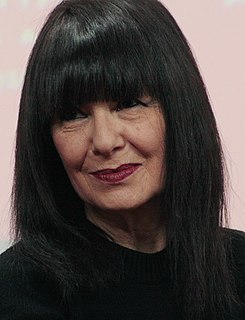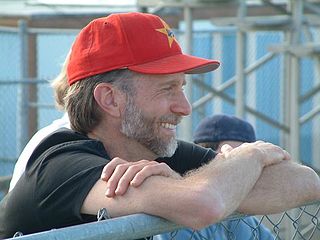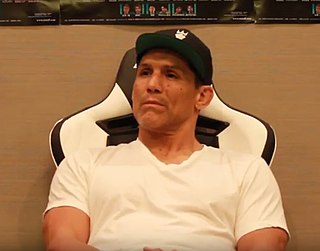A Quote by Roselee Goldberg
My art history papers were really politics. They were about the manifestation of culture through the eye of political events. So there was always that refusal to settle in one place, or one discipline or medium.
Related Quotes
The telling of stories, like singing and praying, would seem to be an almost ceremonial act, an ancient and necessary mode of speech that tends the earthly rootedness of human language. For narrated events always happen somewhere. And for an oral culture, that location is never merely incidental to those occurrences. The events belong, as it were, to the place, and to tell the story of those events is to let the place itself speak through the telling.
Growing up in the '80s, questions of style and music and youth culture all seemed inherently political - like gay rights issues, dressing up, wearing makeup, arms protests. A lot of attitude and opinions were expressed through clothes, and they all were meaningful. So in that way, I was so excited about the connection between our private lives and politics - who I kiss, how I like to dance.
As a composer, I believe that music has the power to inspire a renewal of human consciousness, culture, and politics. And yet I refuse to make political art. More often than not political art fails as politics, and all too often it fails as art. To reach its fullest power, to be most moving and most fully useful to us, art must be itself.
I don't mind being labeled as a political songwriter. I've chosen to do that. What really annoys me is being dismissed as a political songwriter. That really pains me, because life isn't all about love; it's not all about politics, either. It's a beautiful mixture of events that absolutely baffle you, and you think, "Why can't I do something about that?", whether those events are in your bedroom, or out there in the wide world. In our daily lives we engage with them at different times, and I'm trying to write about the whole human experience, or my perspective on it anyway.
I think any information about any type of art form, it's always the right time. But since the last one, I could see there were many things about the culture of DJing that we don't really talk about. We don't really look at how the music is made, how it's conceptualized, how it's put together. We talk about the equipment and the software, but we don't talk about the reasons why we put the music together in the first place.
The country and culture commonly known as "America" had had a badly split personality all through its history. Its overt laws were almost always puritanical for a people whose covert behavior tended to be Rabelaisian; its major religions were all Apollonian in varying degrees---its religious revivals were often hysterical in a fashion almost Dionysian.
The really interesting moment will be when you have a critical mass of people engaging through the networks, more than through the press and TV. When that happens, the culture of politics has to change, moving away from controlled one-way messages towards a political culture that is more questioning.
Even those who specialize in the history of philosophy often ignore the political and cultural context, and the natural world in which their philosophers were philosophizing. This has consequences both trivial and important. If you systematically read the last fifty years of the major journals in our discipline you would be amazed at the amount of redundancy. Most of this is unacknowledged because most of us know so little about the history of our discipline and even the subfields in which we work.
Above all things, Strikeforce is a stable, established business that has experience with live events, and it has the martial arts culture. I worked closely with EliteXC and they had no martial arts culture. They didn't really understand what they were doing, so the odds of them being successful were kind of a crapshoot.








































